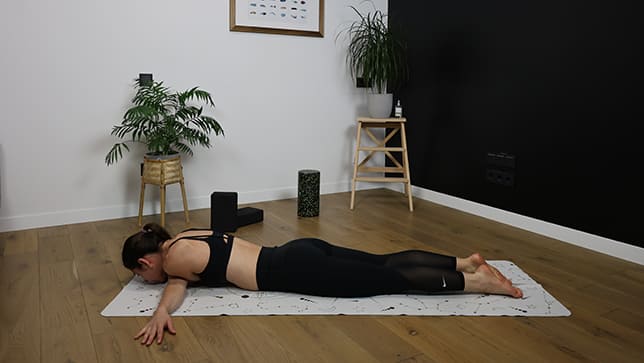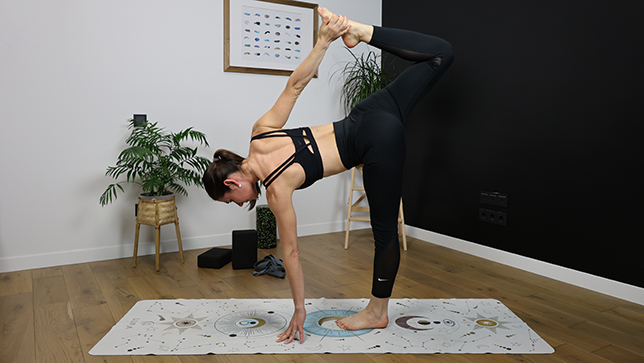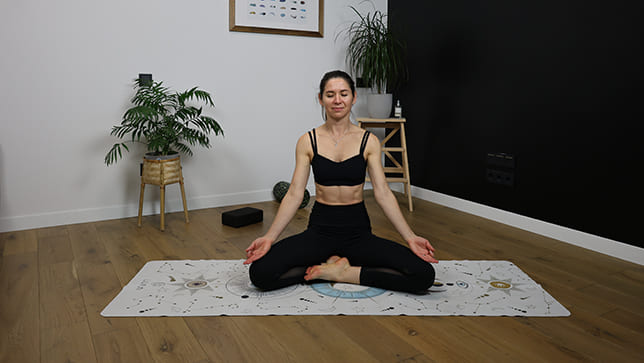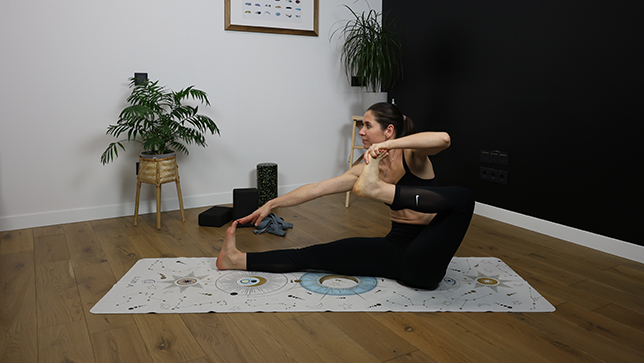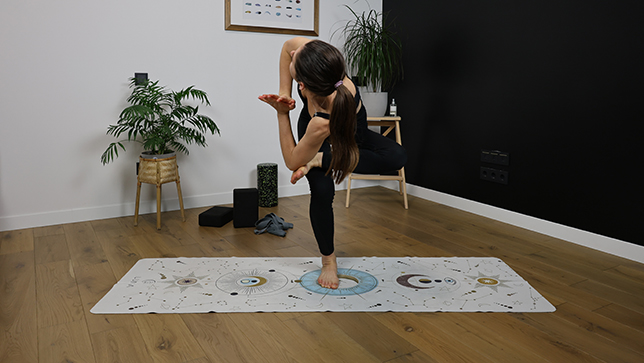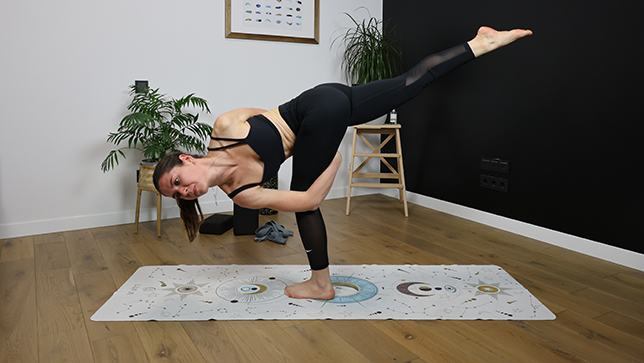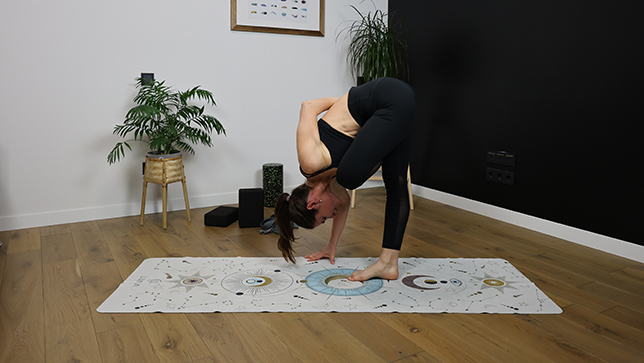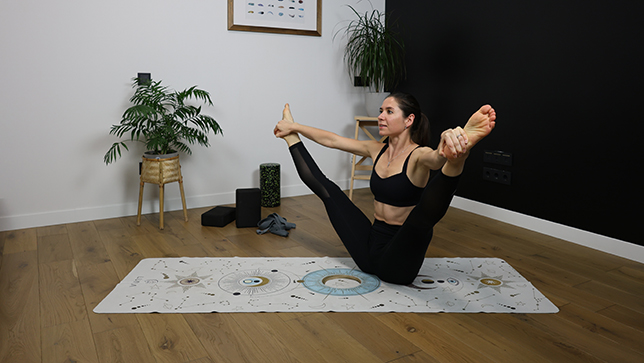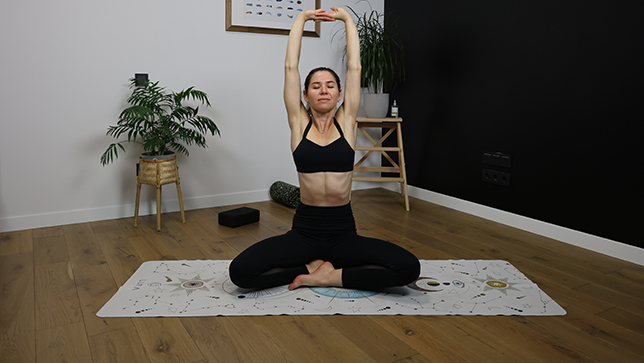Flexibility is a fundamental aspect of yoga, and it plays a crucial role in the practice for several reasons:
- Improved Asana Practice: Flexibility allows you to move more deeply into yoga poses (asanas) with proper alignment. It helps you achieve the intended benefits of each pose and explore more advanced variations safely.
- Enhanced Range of Motion: Yoga emphasizes fluid movements and gentle stretches, which gradually increase your range of motion. As you become more flexible, you can access a wider range of poses and movements.
- Injury Prevention: Being flexible helps prevent injuries during yoga practice. It allows your muscles and joints to move freely, reducing the risk of strains and other injuries caused by restricted movement.
- Stress Reduction: Yoga, combined with flexibility training, promotes relaxation and stress reduction. Stretching releases tension in the muscles and activates the parasympathetic nervous system, inducing a calming effect.
- Mind-Body Connection: Flexibility training in yoga encourages mindfulness. As you focus on your breath and sensations during stretches, you develop a deeper mind-body connection, fostering self-awareness and presence.
- Balanced Energy Flow: In yoga, it is believed that physical and emotional tensions can block the flow of prana (life force energy). Flexibility poses help release these blockages, allowing prana to flow freely and promoting overall well-being.
- Cultivation of Patience: Flexibility is not achieved overnight; it requires consistent practice and patience. Yoga encourages acceptance of where you are in your practice, teaching valuable lessons in patience and self-compassion.
- Increased Comfort in Sitting and Meditation: Flexibility in the hips, hamstrings, and spine makes sitting for extended periods more comfortable during meditation and pranayama (breathwork).
- Preparation for Advanced Practices: Advanced yoga practices often require a higher level of flexibility. Working on your flexibility gradually prepares your body for more challenging postures and practices.
- Ageless Practice: Yoga is a lifelong practice, and maintaining flexibility as you age contributes to better joint health, mobility, and a sense of vitality.
It’s important to remember that yoga is not just about achieving extreme flexibility or contortionist-like poses. The focus should be on mindful and safe progress in your practice. Each person’s body is unique, and the journey of flexibility in yoga is about finding balance, self-awareness, and well-being at every stage of your practice.
